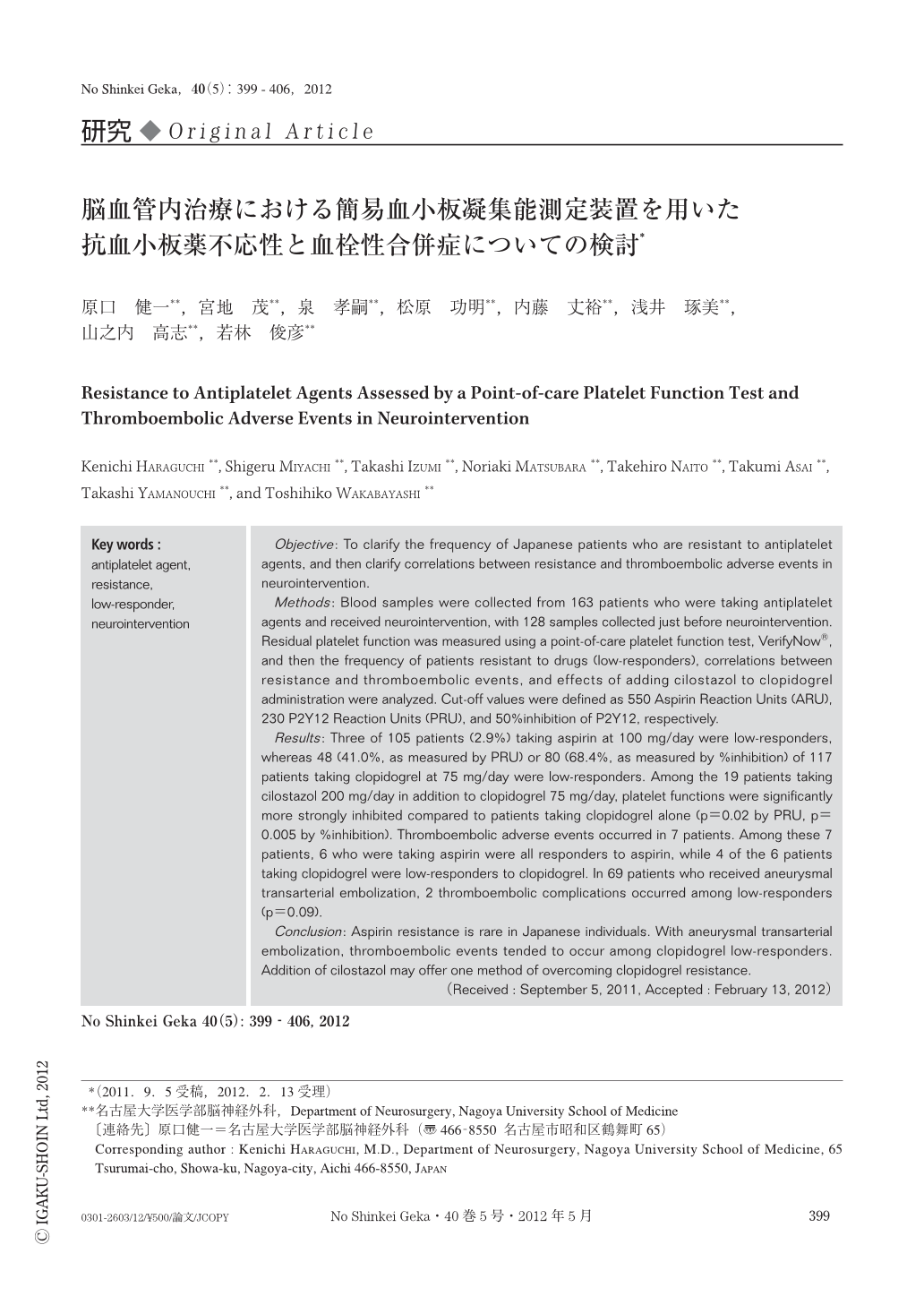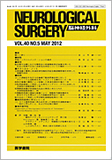Japanese
English
- 有料閲覧
- Abstract 文献概要
- 1ページ目 Look Inside
- 参考文献 Reference
Ⅰ.はじめに
近年明らかになっている抗血小板薬不応性の存在は,虚血性脳血管障害の再発率を上昇させ4,18),冠動脈疾患をはじめとした虚血性血管障害患者の予後を悪化させる9,21,33-35).脳血管内治療においても重要な役割をもつこれらの薬剤への不応性を克服することは,今後その治療成績を向上させるにあたって不可欠であると考えられる.われわれの施設ではベッドサイドでの簡易血小板凝集能測定装置VerifyNow®を導入し,脳血管内治療患者の抗血小板薬不応性について検討したので,その結果に主に心血管領域からの文献的考察を加えて報告する.
Objective: To clarify the frequency of Japanese patients who are resistant to antiplatelet agents,and then clarify correlations between resistance and thromboembolic adverse events in neurointervention.
Methods: Blood samples were collected from 163 patients who were taking antiplatelet agents and received neurointervention, with 128 samples collected just before neurointervention. Residual platelet function was measured using a point-of-care platelet function test, VerifyNow®, and then the frequency of patients resistant to drugs (low-responders), correlations between resistance and thromboembolic events, and effects of adding cilostazol to clopidogrel administration were analyzed. Cut-off values were defined as 550 Aspirin Reaction Units (ARU), 230 P2Y12 Reaction Units (PRU), and 50%inhibition of P2Y12, respectively.
Results: Three of 105 patients (2.9%) taking aspirin at 100 mg/day were low-responders, whereas 48 (41.0%, as measured by PRU) or 80 (68.4%, as measured by %inhibition) of 117 patients taking clopidogrel at 75 mg/day were low-responders. Among the 19 patients taking cilostazol 200 mg/day in addition to clopidogrel 75 mg/day, platelet functions were significantly more strongly inhibited compared to patients taking clopidogrel alone (p=0.02 by PRU, p=0.005 by %inhibition). Thromboembolic adverse events occurred in 7 patients. Among these 7 patients, 6 who were taking aspirin were all responders to aspirin, while 4 of the 6 patients taking clopidogrel were low-responders to clopidogrel. In 69 patients who received aneurysmal transarterial embolization, 2 thromboembolic complications occurred among low-responders (p=0.09).
Conclusion: Aspirin resistance is rare in Japanese individuals. With aneurysmal transarterial embolization,thromboembolic events tended to occur among clopidogrel low-responders. Addition of cilostazol may offer one method of overcoming clopidogrel resistance.

Copyright © 2012, Igaku-Shoin Ltd. All rights reserved.


